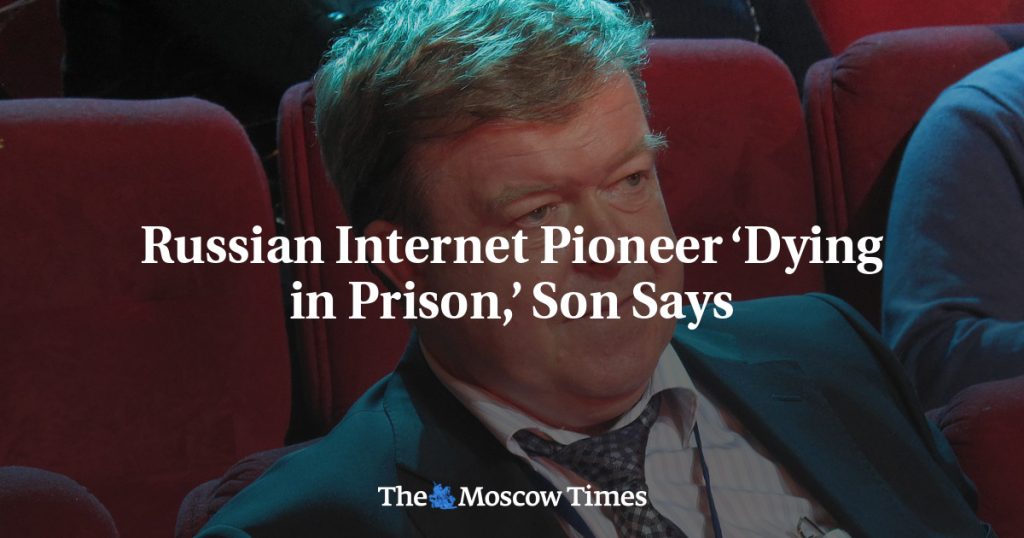Alexei Soldatov, a key figure in the development of the Russian internet and a former deputy minister, is currently serving a two-year prison sentence for “abuse of power.” His son, investigative journalist Andrei Soldatov, recently shared on social media that his father is “dying in prison,” painting a grim picture of the conditions he has been subjected to. Soldatov, often referred to as the father of the Russian internet, played a crucial role in connecting the Soviet Union to the global internet through the Relcom computer network. Despite his contributions, he has faced legal troubles related to the transfer of IP addresses from a Russian institute to a Czech provider.
Soldatov’s imprisonment has been filled with hardships, with reports of him being moved between three prisons, sleeping on the floor, and sharing a cell with 40 inmates. His son described the situation as a nightmare for the 72-year-old scientist, particularly pointing out the inhumane conditions his father has been subjected to. Soldatov was transferred to a prison hospital after contracting a lung infection, but his condition has not significantly improved. His recent collapse during a visit with his wife raised concerns about his health, and despite this, prison medics deemed him fit to return to a regular prison cell, further exacerbating the dire situation.
The case against Alexei Soldatov reportedly stems from a feud with Andrei Lipov, the head of Russia’s internet regulator Roskomnadzor, over ownership of the .su domain. According to reports, Lipov initiated the proceedings against Soldatov in 2019, leading to the current imprisonment. The charges related to the transfer of IP addresses have been contested by Soldatov’s lawyers and family, who believe the accusations to be unfounded. The situation highlights the challenges faced by individuals in Russia who have been instrumental in driving technological advancements but find themselves targeted by the authorities.
The treatment of modernizers and pioneers in Russia raises questions about the country’s approach to innovation and progress. The imprisonment of Alexei Soldatov, a respected figure in the development of the Russian internet, has sparked outrage and concerns about the lack of protection for individuals who have contributed significantly to technological advancements in the country. The conditions faced by Soldatov in prison paint a grim picture of the realities that individuals may face when they become entangled in legal disputes with powerful figures in the government or regulatory bodies.
The case of Alexei Soldatov serves as a reminder of the challenges facing independent journalism in Russia, with The Moscow Times facing significant obstacles in carrying out its work. The labeling of the publication as an “undesirable” organization and a “foreign agent” underscores the broader crackdown on independent media in the country. Despite these challenges, journalists at The Moscow Times remain committed to providing accurate and unbiased reporting on Russia, highlighting the importance of supporting independent media outlets in the face of repression. The call for support from readers reinforces the critical role that independent journalism plays in holding power to account and ensuring transparency in society.


